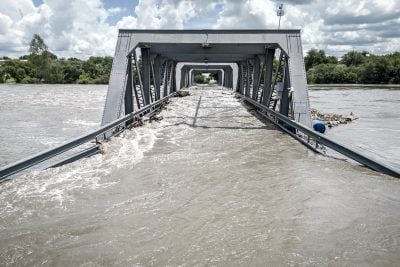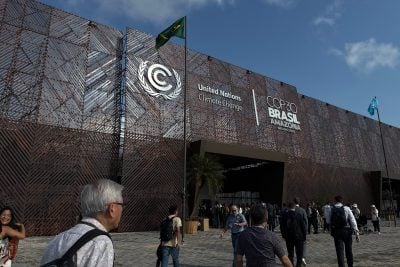The Africa Finance Corporation’s infrastructure summit in May saw the launch of a white paper calling for a pragmatic approach to achieving net zero in Africa. Africa accounts for less than 4% of current global greenhouse gas emissions. The white paper, entitled “Roadmap to Africa’s COP: A Pragmatic Path to Net Zero”, argues that there are limited benefits to be gained from reducing the region’s already far lower emissions.
As the report points out, “Africans must balance the need to combat climate change with an urgency to develop the continent’s economies in order to alleviate hunger and poverty, among other UN sustainable development goals.”
It calls for African efforts to combat global warming and developing the continent’s economies to focus on three areas: localising production, building infrastructure, and promoting financial innovation to tap essential climate funds.
Three essential steps to combat climate change
“Africa is unlike any other continent when it comes to global net zero – and we need a blueprint for a common negotiating stance that reflects this,” said Samaila Zubairu, president and CEO of AFC. “We are advocating for consideration of Africa’s energy deficit and the need for quantum leaps in industrialisation for job creation and reducing poverty, as well as climate-proofing built infrastructure and protecting our powerful carbon sinks.”
The report concludes that instead of cutting emissions, African nations will drive a far greater effect in combatting global warming by focusing instead on three significant areas of change: localising, rebuilding and “finnovating”:
1. Localise
According to the report, Africa must focus on developing local industries by putting processing and manufacturing at the centre of sustainable circular economies. Doing so will eliminate emission-spewing shipments of Africa’s minerals and other commodities to Asia for manufacturing and processing, only to be shipped again as finished goods to consumer markets.
Africa contains plentiful reserves of many key natural resources, including iron ore and copper, plus agricultural commodities, such as cocoa, coffee and cotton. Yet at present, these raw materials are overwhelmingly shipped overseas, particularly to Asia, for processing. An incredible 74% of African cocoa and 86% of African crude oil is exported unprocessed, with some of the resulting processed goods being shipped back to Africa. Creating circular local economies will cut shipping sector emissions.
This will require more plentiful and reliable supplies of electricity for manufacturing in Africa, which in turn will boost local living standards and prevent the erosion of forest carbon sinks to provide firewood and charcoal. The report calls for this electrification process to be driven by renewable energy, with natural gas used as a transitional fuel.
Although the production and consumption of natural gas produces substantial carbon and methane emissions, using gas cuts the consumption of higher emission coal, diesel and firewood. Moreover, given that the continent contains the biggest reserves of some of the metals needed for the renewable energy revolution, such as lithium and cobalt, “manufacturing the components of renewable energy technology, from electric vehicle batteries to wind turbines, is an essential circular economy for development in Africa”, the report states.
2. Re-build
Africa is the most exposed region to the ravages of global warming largely because its infrastructure is ill equipped to withstand climate shocks. Without intervention, the cost of structural damage caused by natural disasters in Africa will increase from $250-300bn now to $415bn a year by 2030.
The continent needs strong and resilient building — to re-build ocean and river defenses, and infrastructure in transport, construction, electricity grids and off-grid energy, which will in turn help the development of sustainable mining and the circular economies that drive growth and job creation, according to the report.
3. Finnovate
Key to effecting change is ensuring that Africa-based institutions such as the AFC get access to essential climate funds through financial innovation to support resilient building and investment in localised mass-scale manufacturing and processing. Financing is also needed to help preserve Africa’s vast carbon sinks, which absorb more carbon dioxide annually than any other region’s rainforests but are being depleted by local populations for firewood for cooking and heating.
Working with development finance institutions, governments and institutional investors, AFC’s many projects over the course of 15 years demonstrate that it is possible to mobilise financing at scale through crowding in private sector investment. Through leveraging financial input from governments and NGOs, AFC has the tools to de-risk climate investments and offer strong returns to incentivise funding from institutional investors. These efforts can help ensure that capital flows to the frontlines of the fight against climate change – Africa.
International community must take Africa’s needs into account
The AFC calls on the international community to take Africa’s energy deficit and industrialisation needs into account, as well as requirements on climate-proofing infrastructure and protecting carbon sinks.
Finally, the report warns that worldwide momentum around climate action is likely to trigger dislocations in the global flow of capital, with unintended consequences for developing countries’ access to funds.
This is already apparent in the redirection of capital flows to middle income countries to drive carbon emission mitigation, bypassing poorer and less polluting regions. This must be taken into account in devising a blueprint for a pragmatic transition for Africa that balances the continent’s very low emissions and development aspirations, while also ensuring that the region engages in a realistic global net-zero agenda.
Want to continue reading? Subscribe today.
You've read all your free articles for this month! Subscribe now to enjoy full access to our content.
Digital Monthly
£8.00 / month
Receive full unlimited access to our articles, opinions, podcasts and more.
Digital Yearly
£70.00 / year
Our best value offer - save £26 and gain access to all of our digital content for an entire year!
 Sign in with Google
Sign in with Google 



